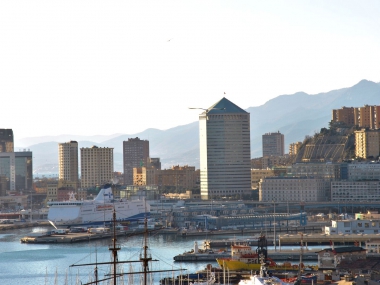Genoa, Amsterdam and the Interactive Cities in the Champions League of social media innovators
Edited on
20 December 2017The experience of the European urban network Interactive Cities Network shows that using Facebook, Twitter and Instagram is much more than a communication tool: it activates citizens' participation and creativity.

Italy is without doubt one of the European countries where the use of social media has become a regular element of the communication strategies of public administrations. Just taking a look at the social media accounts of major European cities such as London, Paris, Rotterdam or Barcelona is possible to understand how these social media ecosystems, often very different from each other, contain ideas for innovation on a series of themes, from the city promotion to economic development up to civic participation.
The experience of the URBACT Interactive Cities network, carried out in recent years by a group of pioneering cities in the use of social media and apps to improve the relationship between citizens and local administrations, highlights once more how social media can become an indispensable tool to any sustainable urban development strategy.
It is no coincidence that a leading role in this network, which sees among the partners cities as Paris, Lisbon, Ghent and Palermo, is covered by Genoa that in recent years has strongly linked the debate on the use of social media to the promotion of the urban brand, with important results not only in terms of attendance, but also visibility on platforms such as Facebook, Twitter, Instagram and the Russian VKontakte.
It is not just the number of mentions for the hashtag #GenovaMoreThanThis, often used by tourists, influencers and bloggers in recent years, but also an innovative strategy of coordination between all communicators related to the promotion of the city: a social media newsroom, having the Municipality alongside stakeholders such as city museums, the ancient port, the airport (to name a few), but also informal groups such as the local instagrammers community and even the social media managers of Genoa and Sampdoria , involved in the Local group that is defining a collaborative, shared storytelling of the city of the future.
Bringing this experience to Europe is creating an element of strength for Genoa and other urban stakeholders, capable of reviving new types of comparison on a European scale. For the first time, in fact, a group of cities is talking about how social media can promote new forms of urban development starting from successful experiences, such as those carried out in Paris on the involvement of citizens through social networks in initiatives such as participatory budgeting or promotion of historical shops in the arrondissements less visited by tourists. With the aim of promoting through social networks a new sense of community among residents and a socially and economically responsible tourism.
The interaction between social and urban innovation strategies culminates for example in the case of Helsinki with the "release" of dozens of data sets for the creation of apps and platforms that have improved the participation of citizens in urban decision-making processes (such as Open Ahjo, which geolocates the decisions of the council and city council), but also in the case of Amsterdam, which is connecting its social media strategy to an ambitious urban branding strategies involving all the areas and social categories of the cities. This kind of interaction represents the challenge number one for the cities that are discussing in the framework of the URBACT network on the type of relations to be established with social media platforms as well as with the networks of local startuppers and innovators who create innovative platforms, such as the First Life civic social network being tested in Turin.
Involving more and more cities in this action of exchange of practices and experiences, which is positively attracting the attention of European institutions and other urban networks active on a European scale, can undoubtedly help to make this dialogue stable and structural, as it evolved in recent years towards a wider comparison on how to use social media tools as well as on the new functionalities that they can cover to tackle some of the most urgent urban challenges, from creating new jobs to social inclusion of the weaker groups. From the partners of Interactive Cities many useful insights to qualify this debate in Italy as in Europe are emerging, in order to identify in social media an unprecedented (and unexpected) element of support for the implementation of urban policies on a national, European and global scale.
(The original version of this article was also published in Italian on the Blog Section of AGI – Agenzia Giornalistica Italia, Italian News Agency)
Simone D'Antonio
Ad Hoc Expert
Submitted by fvirgilio on
